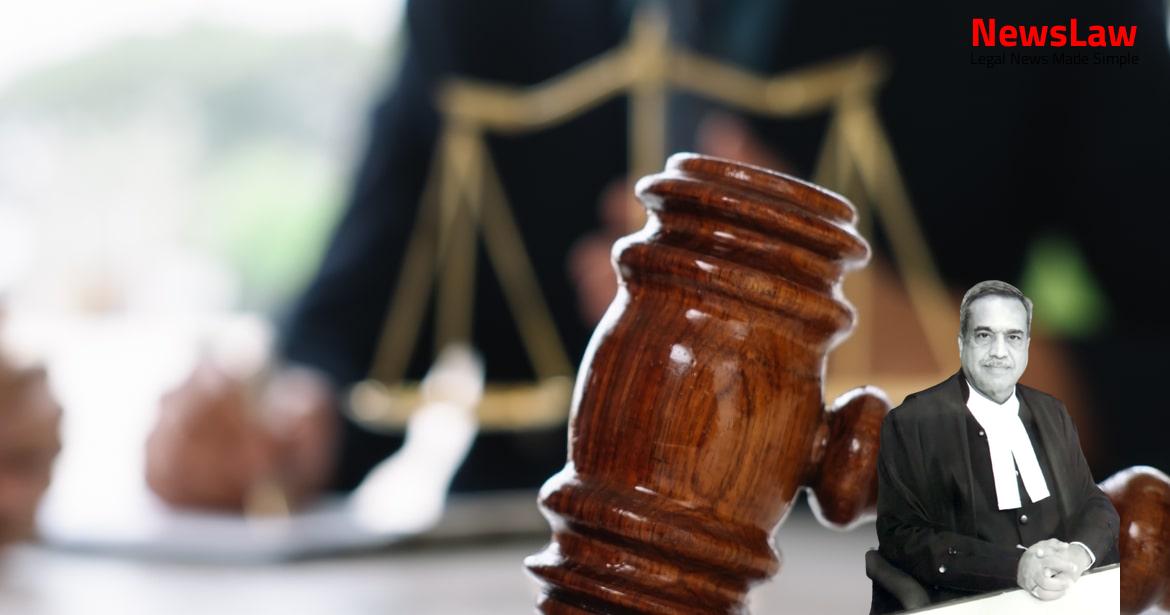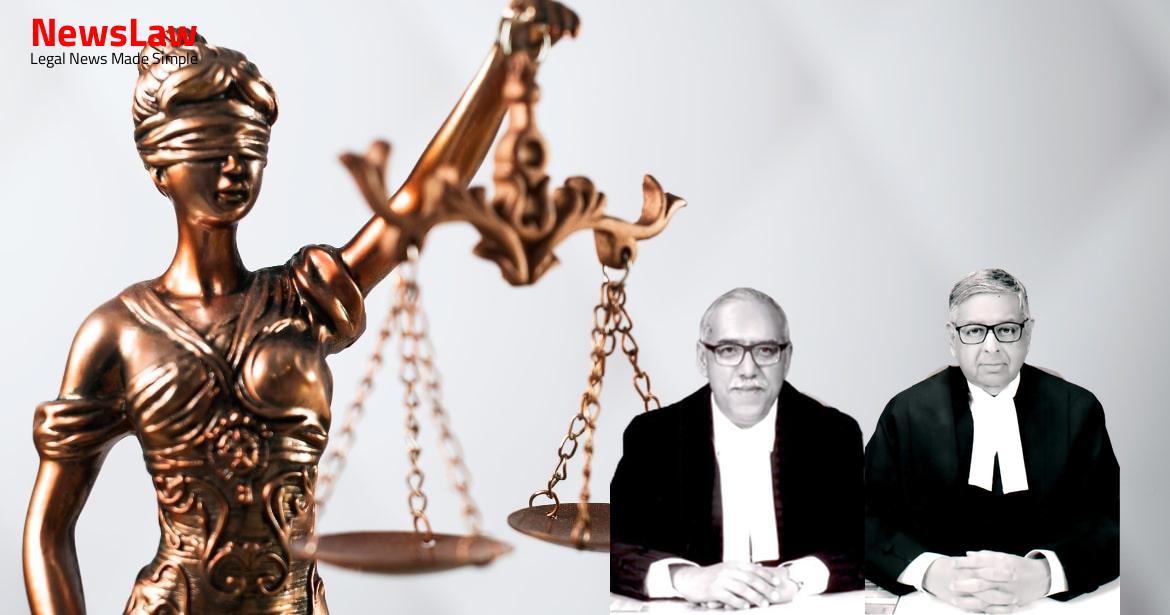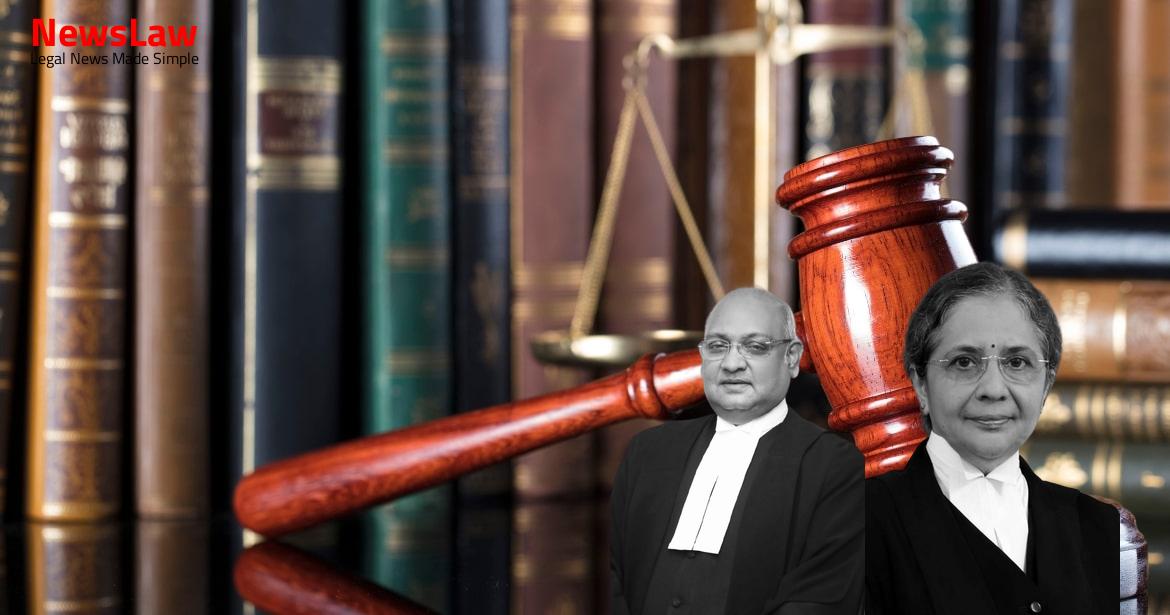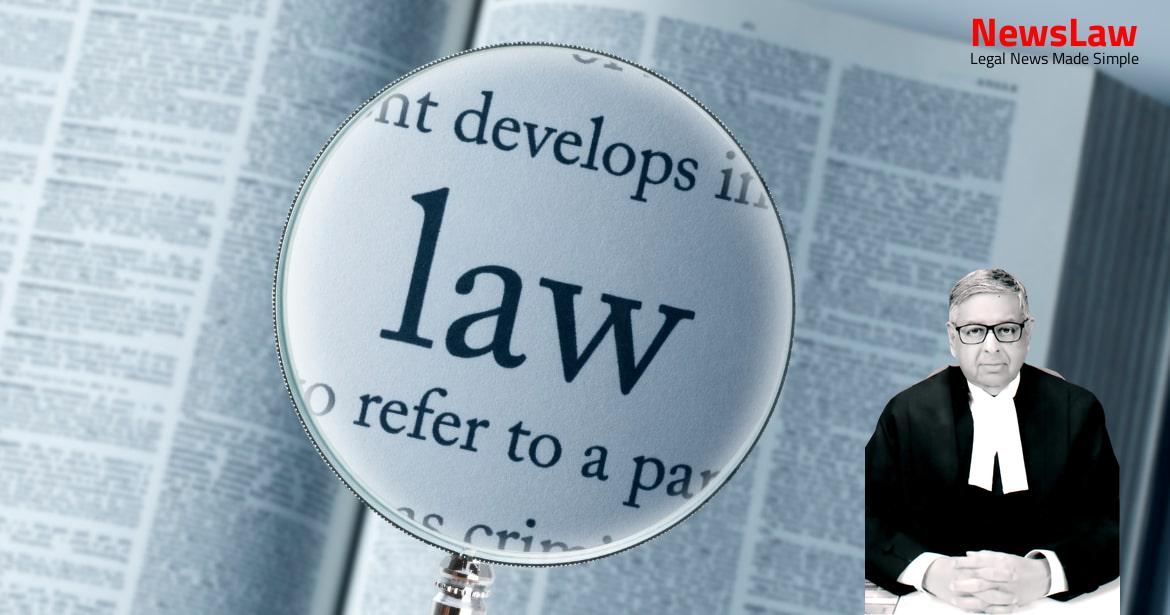In a recent legal development, a high court’s decision to acquit the accused in a corruption case has sparked a debate over the nature of proof required for conviction. The conflicting decisions of two and three-judge benches of the Supreme Court have led to a deferred appeal decision pending a larger bench’s ruling on inferring guilt in the absence of direct evidence. This case summary highlights the court’s in-depth legal analysis in navigating the complexities of proving corruption allegations. Stay informed on the evolving legal standards in corruption cases!
Facts
- State appeals against the high court’s decision to acquit accused in a corruption case
- The high court acquitted the accused due to lack of proof of demand and acceptance
- There is a conflict in decisions of two and three-judge benches of the Supreme Court on the nature of proof required for conviction in corruption cases
- A larger bench is yet to determine if guilt can be inferred in absence of direct evidence of demand for illegal gratification
- The present appeal is deferred until the larger bench decides on this question of law
- Accused Nos. 1 and 2, while working as Excise Prevention Officers, visited Toddy Shop No.36 and demanded Rs. 2,000 from Shri P.J. Joseph.
- The raid party and PW8 reached the Excise Range Office and informed PW1 to give signal to the Policemen after giving the money to the accused persons.
- Accused Nos. 1 and 2 accepted Rs. 1,000 and Rs. 500, respectively from the complainant at the Excise Range Office, committing offences under Sections 7 and 13 of the Prevention of Corruption Act.
- Prosecution examined nine witnesses including PW1 (complainant) and PW2 (independent witness). Accused examined DW1, the owner of the shop, as their defence.
- Accused denied the charges and were tried in Special Court. Chargesheet was filed by the investigating officer for the mentioned offences.
- Complaint lodged on 24.03.2001 with the Vigilance Department, leading to a FIR registered by the Vigilance Dy.SP.
Also Read: Challenging Legal Presumptions in Negotiable Instrument Cases
Analysis
- The offence alleged against the accused is punishable under the Prevention of Corruption Act, 1988.
- The issue involved in the present appeal is a pure question of law and facts.
- The delay caused in preferring the present appeal is condoned.
Also Read: Legal Analysis of Admission Irregularities in Educational Institutions
Decision
- The defendant’s application for leave to appeal is granted.
- The Court considered the grounds raised in the application and found them to be valid.
- The defendant is directed to file the necessary documents within the specified timeline.
- The Court’s decision is based on a detailed analysis of the relevant legal provisions and precedents.
- The defendant is hereby granted leave to appeal.
Also Read: Legal Analysis: Driver Appointment Dispute
Case Title: THE STATE OF KERALA Vs. M. KARUNAKARAN (2022 INSC 703)
Case Number: Crl.A. No.-000924-000925 / 2022



